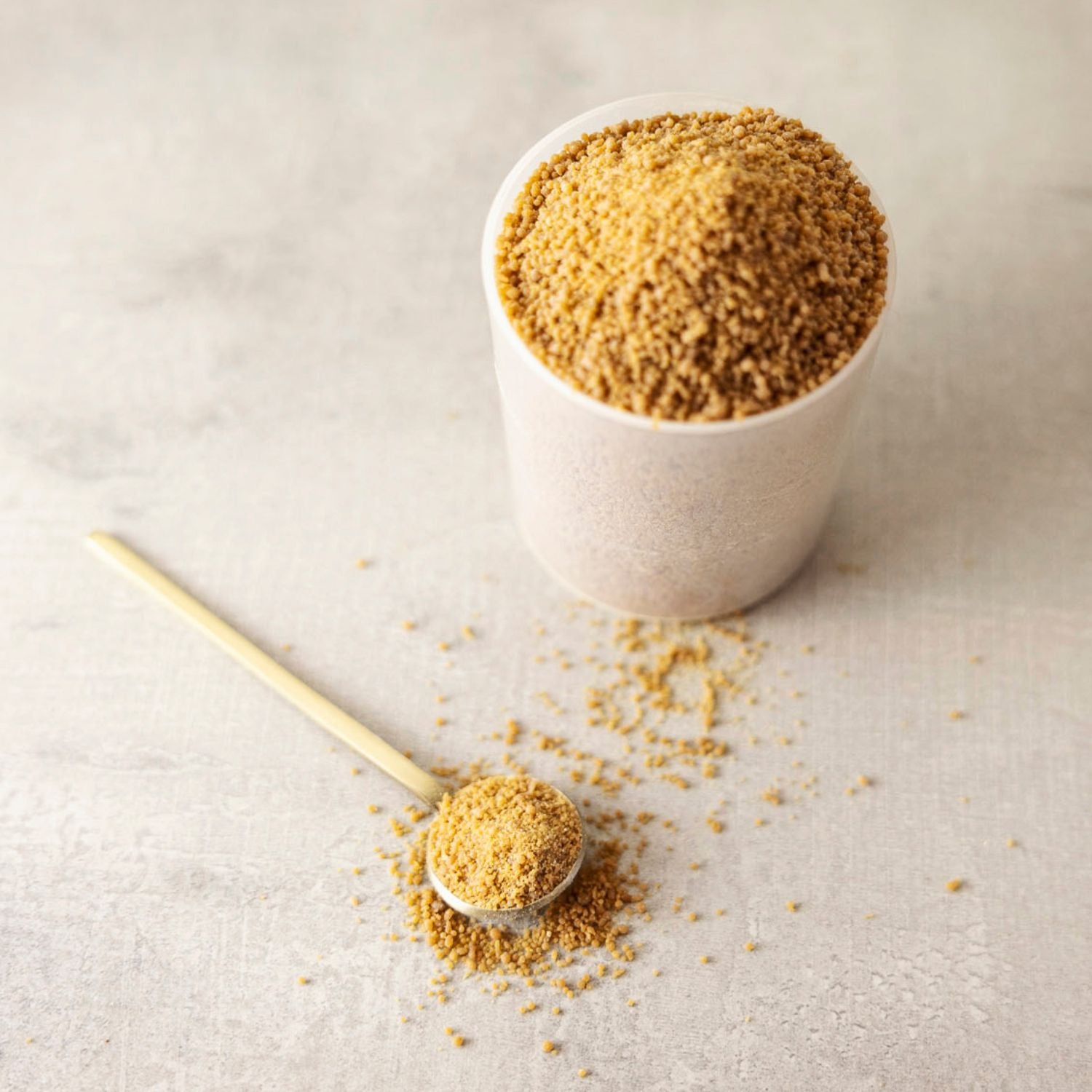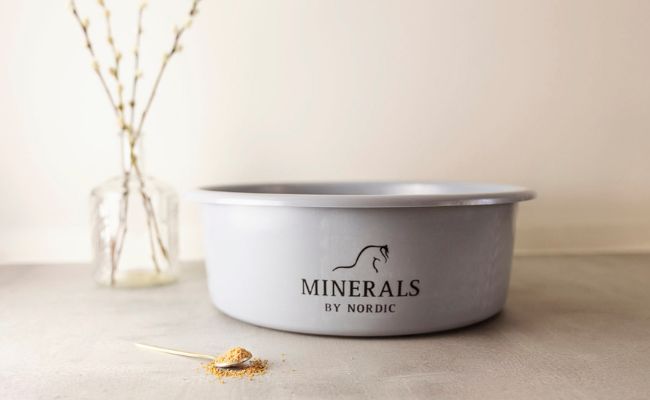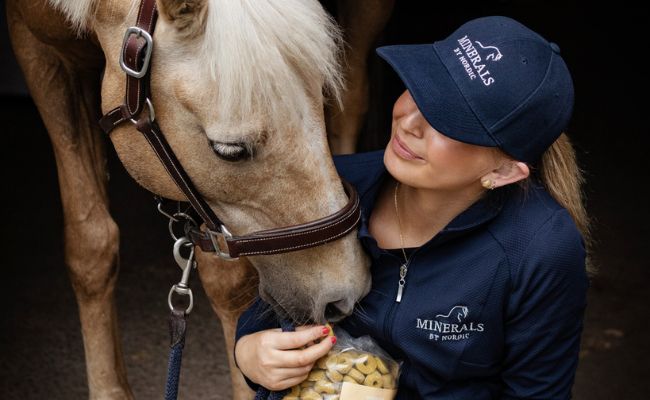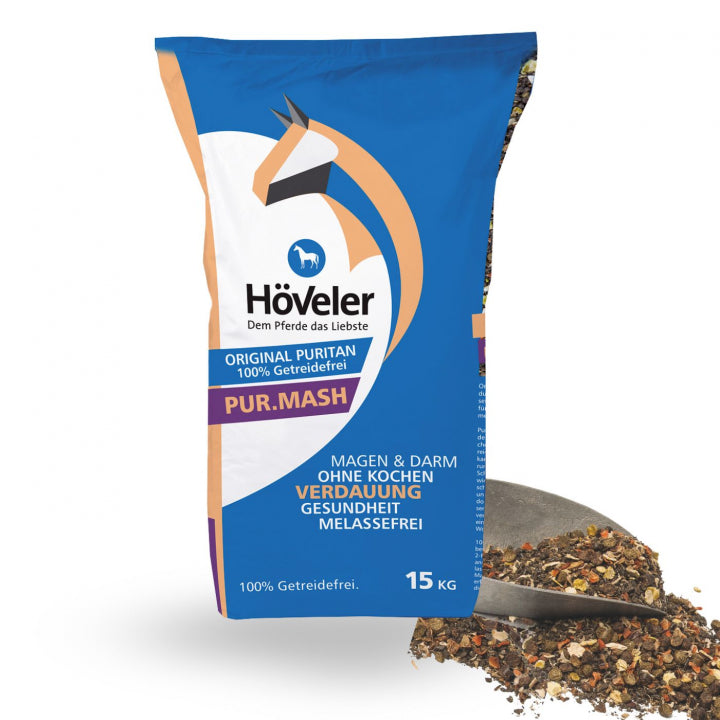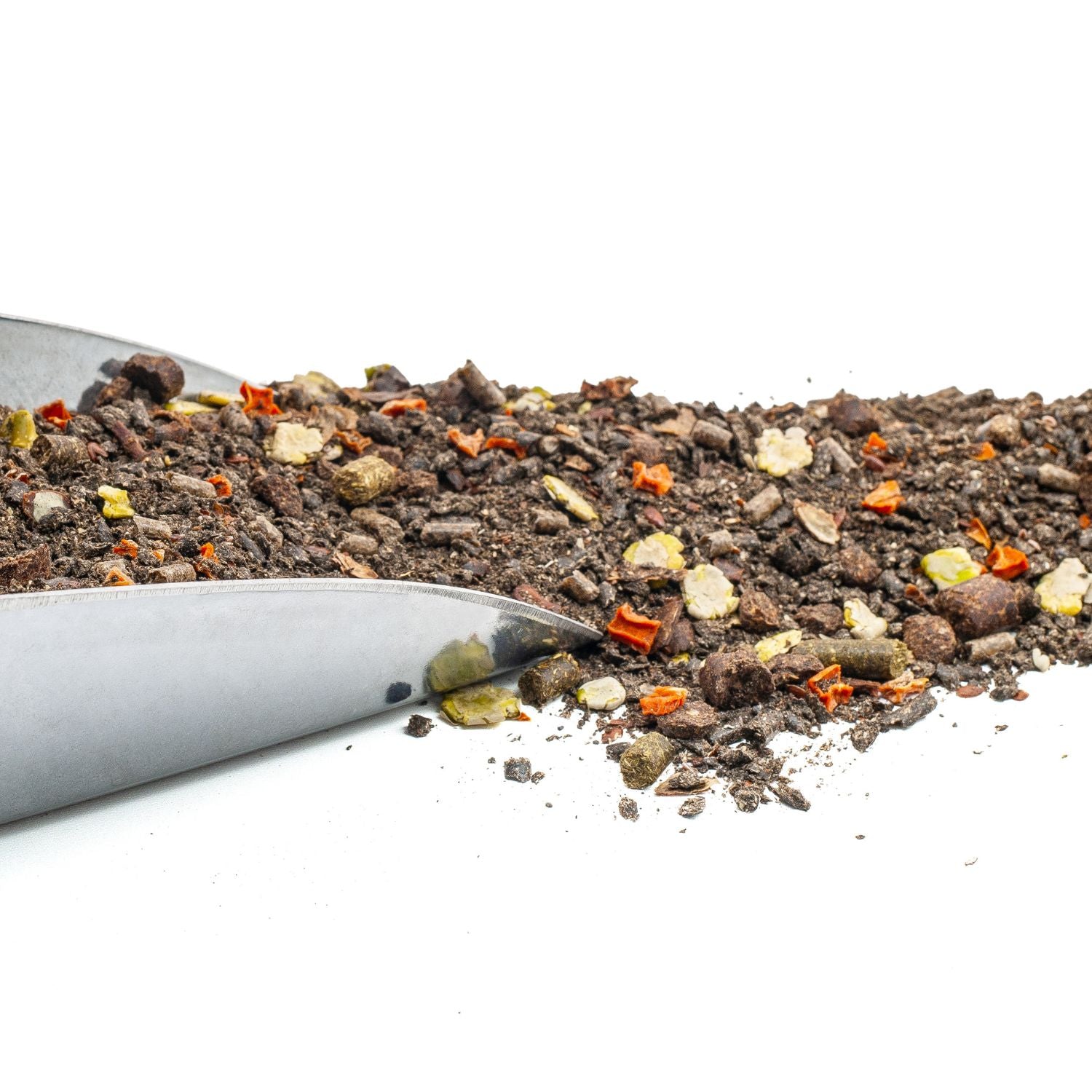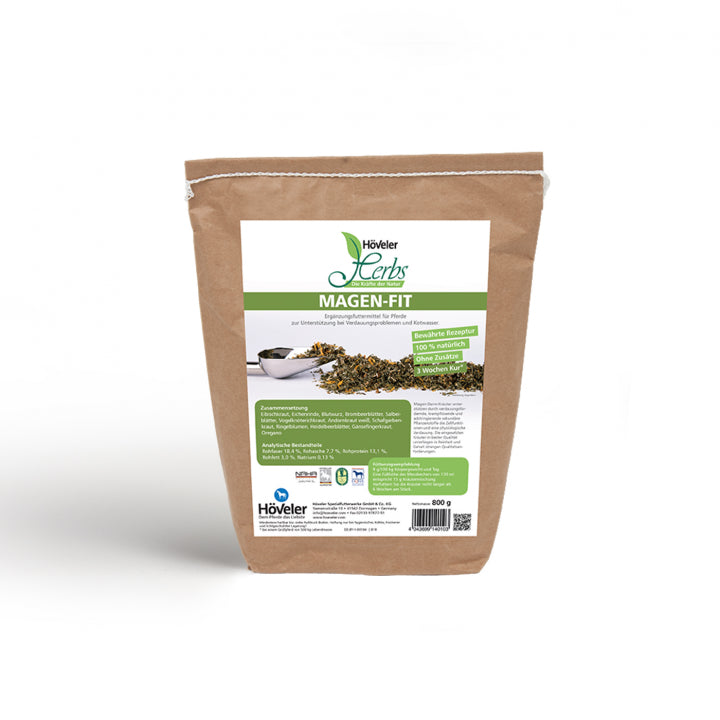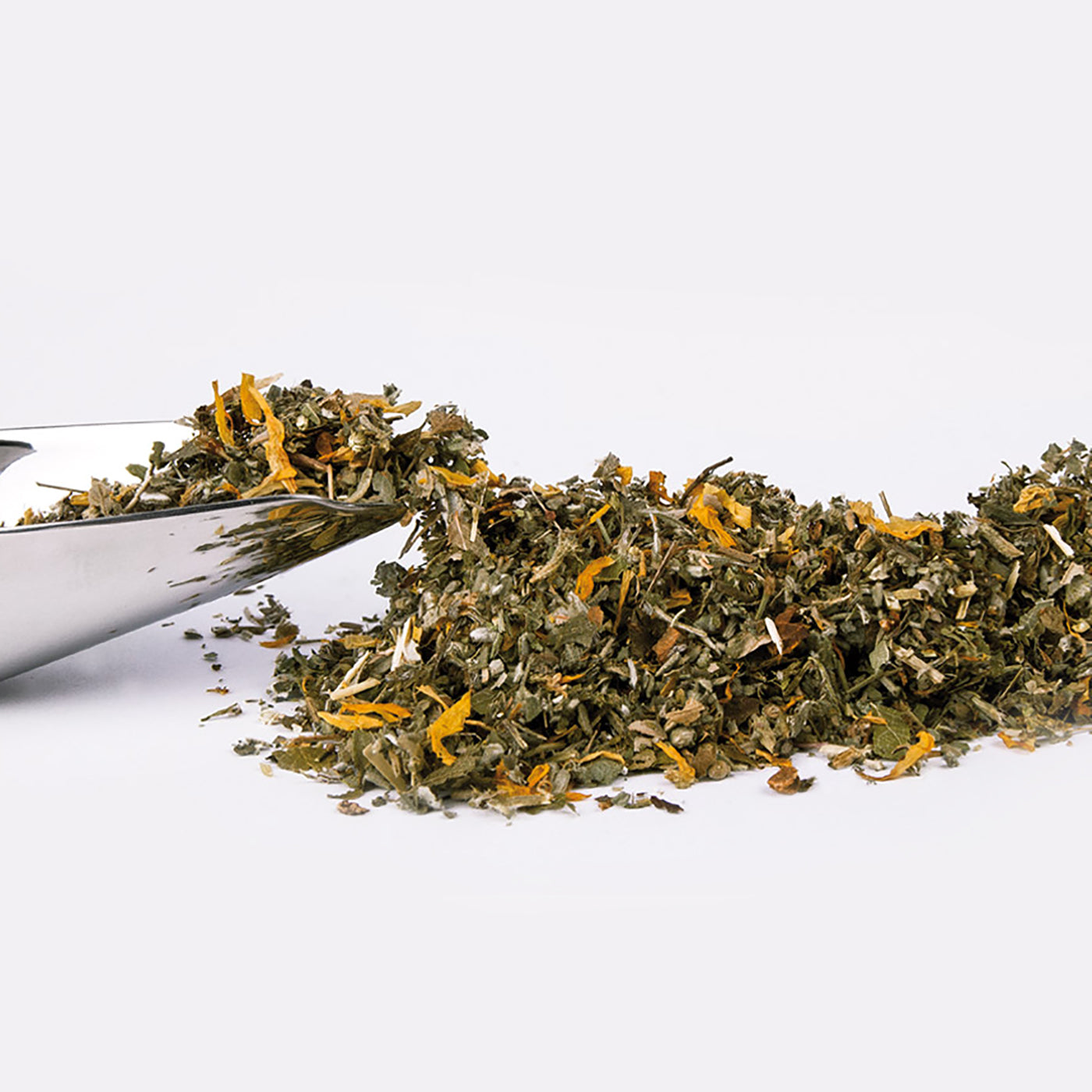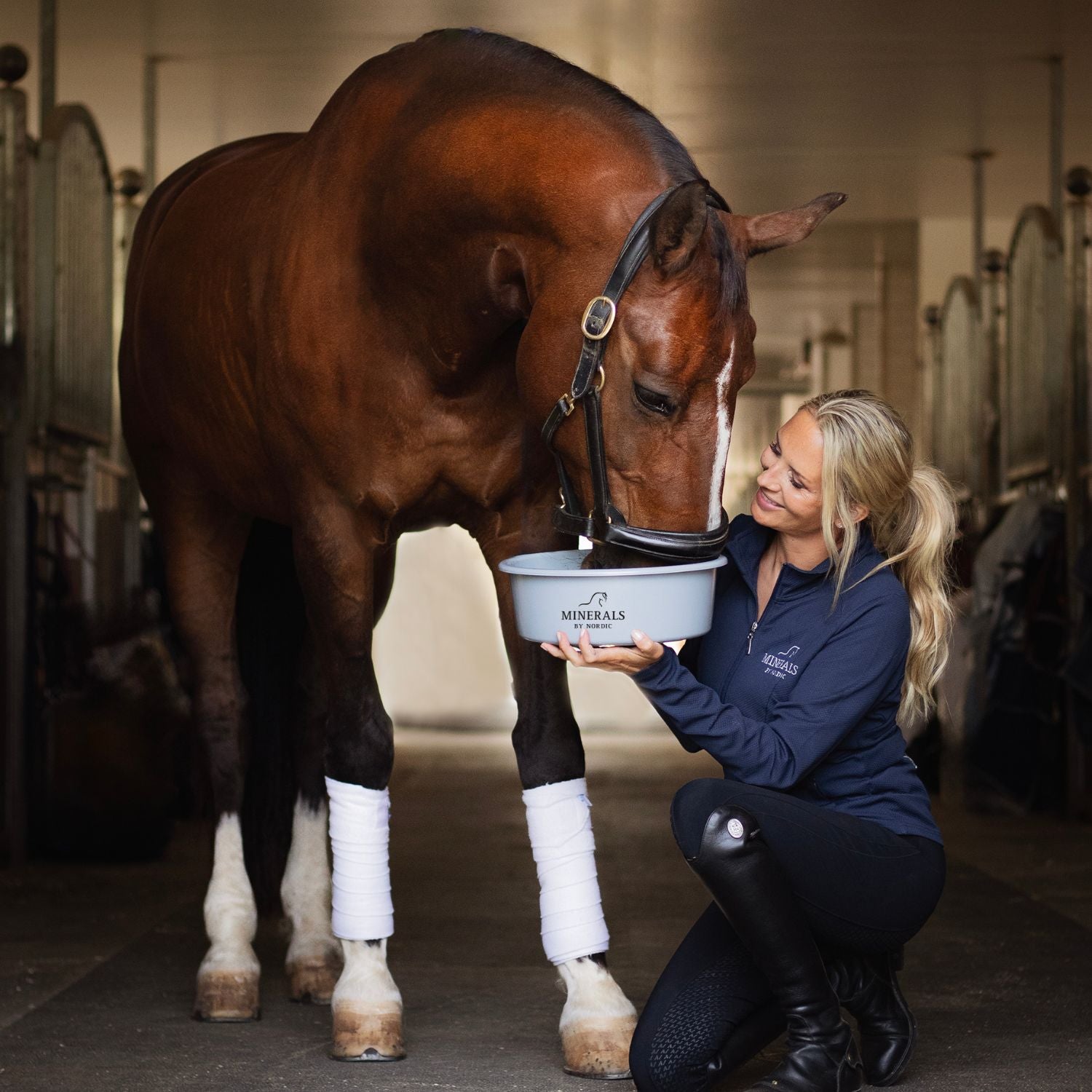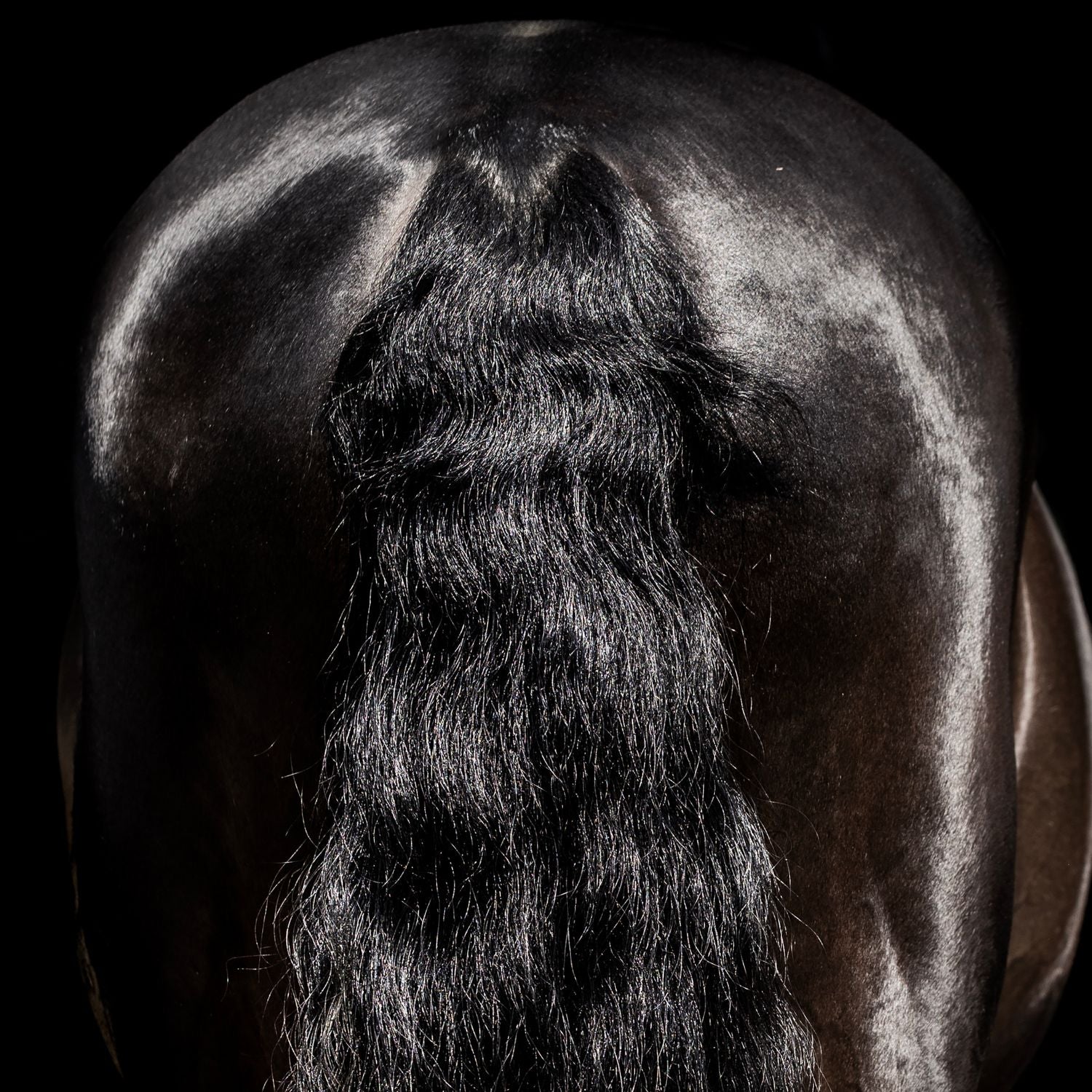Feed supplements for better digestive health in horses
Pur.Gastro & Pur.Mash
Prebiotics help balance the gut flora and promote a healthy intestinal environment. Prebiotics build up the horse’s own beneficial bacteria. Psyllium husks can help cleanse the intestines of sand and prevent sand colic. Pectin has a protective effect on the stomach lining and can be helpful for horses with ulcers.
Inflaboost DHA
Omega-3 fatty acids can reduce inflammation in the body, including in the gastrointestinal tract.
L-glutamine
An amino acid that supports the repair and health of intestinal tissue. Especially useful for horses with or at risk of ulcers. Found in Activ Mineral.
Magnesium and calcium
These minerals can help neutralize stomach acid and reduce the risk of ulcers. They are found in Activ Mineral and Mg Control.
Herbs
Magen-fit is an herbal blend that helps horses with sensitive stomachs. Contains marshmallow and bloodroot, which soothe and protect the stomach and intestinal lining. Oregano and sage promote a healthy gut flora.
Common digestive problems in horses
Colic
Colic is a term for various types of abdominal pain in horses and can be caused by gas, constipation, or intestinal torsion.
Symptoms: Rolling, kicking at the abdomen, sweating, restlessness, reduced feed intake.
Ulcers
Ulcers occur when the stomach lining is damaged by stomach acid.
Symptoms: Reduced appetite, weight loss, mild colic, poor coat, changed behavior.
Diarrhea and watery stools
Diarrhea can be caused by infections, parasites, or stress.
Symptoms: Loose or watery stools, dehydration, weight loss.
Preventive measures
Regular feeding times to keep the stomach active.
High-quality roughage such as hay or grass to neutralize stomach acid.
Reduce grains to lower the risk of digestive issues.
Use of prebiotic supplements to support gut flora.
Stress management by creating a calm environment.
Regular deworming to control parasites.
FAQ: Digestive health in horses
How can mash help a horse with digestive problems?
Mash like Pur.Mash is rich in prebiotics and helps keep the stomach in balance.
How can I prevent colic in my horse?
Provide regular meals, high-quality roughage, and minimize grains. Follow a strict deworming plan.

